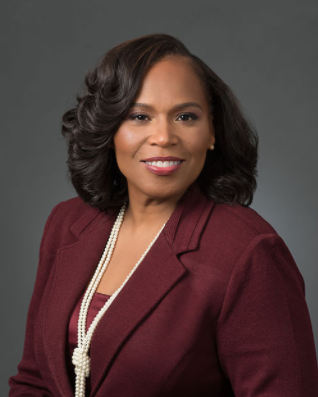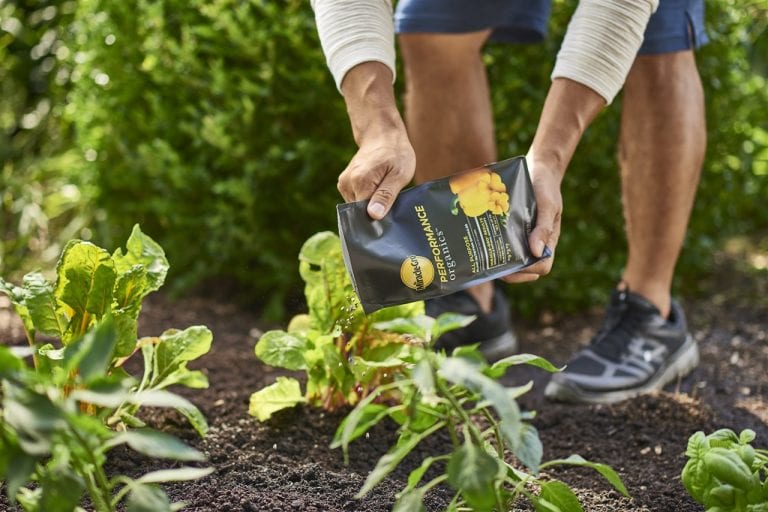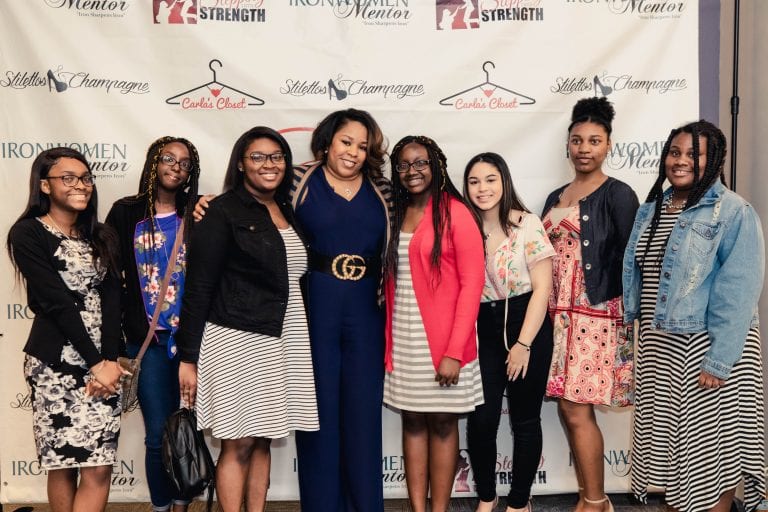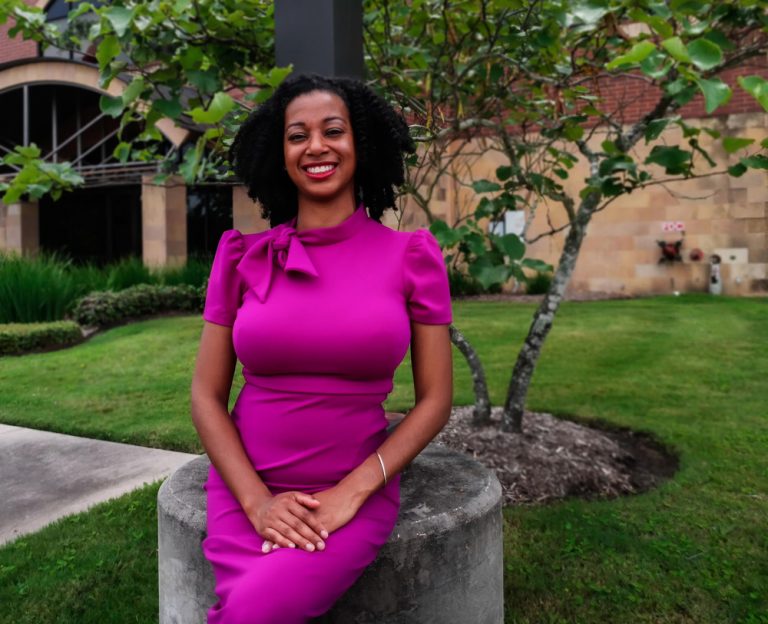At Top 30 Women, we believe that children are the future, and Jacque Daughtry uses her platform to impact children from start to finish. She is the Executive Director at Making It Better and has a passion for enriching the lives of kids socially, academically and emotionally.
We had a chance to catch up with her to talk about her work in the community and how we can all do our part in securing the future of our children.
Check out our Q & A:
Who is Jacque Daughtry?
I am a wife, a mom, a grandmother, a daughter, a sister and a friend . . . a person who invests deeply in family, friends, and my work. I strive to honor and serve the Lord in all I do both personally and professionally. I love people and love serving others in a variety of ways. I am honored to fulfill the role as, Executive Director at Making It Better— it gives me an opportunity to do what I love and enjoy.
What is Making It Better all about?
Everything we do starts with building relationships . . . with the kids we serve, their families, our partner schools and other non-profits. We serve the “whole” child – academically, socially, and emotionally. We know that having great reading literacy skills is critical to success in all areas of life. Therefore, we are laser-focused on building literacy skills and believe deeply in early intervention.
OUR VALUES . . .
Relationships built by trust, respect and commitment.
Partnerships with parents, schools, other non-profits, and community members.
Access to high quality programs that develop the whole child.
MAKING IT BETTER IS OFFERING SOLUTIONS . . .
Interventions to improve students’ reading ability by the end of third grade.
Opportunities for increased parent education and involvement.
Books through distributions throughout the year and our parent partnership programs.
Positive role models through relationships with mentors and staff members.
Can you describe some of the initiatives taking place within Making It Better?
- Reading Intervention focuses on the five core components of reading as determined by the National Reading Panel: Phonemic Awareness, Phonics, Fluency, Vocabulary and Comprehension. Identified K-2 students who are reading well below their peers, attend tutorials in groups of four, twice each week for 45-minute pull-out sessions during the school day. The goal is for students to read on grade level by the end of 3rd grade.
- Steps 2 Success after school program develops leadership and life skills through an interactive curriculum that promotes literacy development and focuses on four content areas: life skills, community engagement, creativity, and grade 13.
- Lunch Bunch pairs trained volunteer mentors with small groups of single gender students to promote positive decision making and healthy relationships. During weekly sessions, literature and hands-on activities help groups explore topics such as self-esteem, social skills, critical thinking, problem solving, and community.
- Parent Partnership engages and educates parents to increase support for their child’s literacy development. Parents are encouraged and provided with additional skills and materials needed to make their homes a literacy-rich environment and support their child’s learning from birth through high school.
- Family Literacy Nights are fun, interactive outreach events that provide materials, education, and activities to encourage reading as a way of life.
- Parent Workshops create comfortable settings where our parents participate in hands-on activities that can easily be implemented at home.
- Ready, Set, Read! Promotes literacy development in our youngest children. In fall 2018, we will launch The Reading Express mobile classroom that will travel to low-income communities. Staff and trained volunteers will lead weekly classes that are open to parents and/or caregivers and their children ages 6 months – 4 years with the goal of preparing children for Kindergarten.
What are some of the expectations you all plan to achieve through the programs?
Each program has specific outcomes that are measured via pre/post testing and/or surveys.
Passion plays a big role in giving back, what keeps you passionate about Making It Better?
I love people, particularly children and have a very soft spot in my heart for children who are struggling whether academically or socially. I’ve been privileged to be with Making It Better since the very beginning so I’ve seen so much growth. The need is so great, that is very humbling. But it’s what drives me and our staff every day to do whatever we can do to improve the trajectory of these little ones’ lives by making high quality literacy programs available to them and their families at no cost to participants. All children can learn and are filled with promise and potential – having the opportunity to unlock that potential through our programs delivered by amazing staff and volunteers is what keeps me excited and motivated to do even more.
What are some of the challenges do the children that you’ll help face daily?
Many of our children face things that “rob them of their childhood” . . . sadly, they are not able to be carefree and innocent. They are food and housing insecure and know it. Their families are overwhelmed and stressed which can lead to physical and substance abuse. Some have parents who are incarcerated. Most have not had access to books or literacy rich home environments which put them at a deficit upon entering kindergarten . . . poor little guys are behind before they ever start school.
What are their demographic backgrounds?
40% African American, 45% Hispanic, 4% Asian, 9% White, 2% other, and 90% free/reduced lunch.
How does literacy correlate with future of the Prison Pipeline?
85% of juveniles who interface with the juvenile justice system are functionally illiterate, 70% of US inmates do not read above a 4th grade level. The correlation to low literacy skills as a child is clear . . . if a child cannot read and comprehend by the time he/she is at the end of third grade, he/she is four times more likely not to graduate from high school. Entering Kindergarten “reading ready” is the greatest predictor of being a proficient reader by the end of 3rd grade. EARLY intervention is the key to everything . . . being a proficient reader, reducing the likelihood for being incarcerated, higher levels of lifetime income, and on and on.
What kind of tools can parents utilize to increase literacy at home?
Understand that you are your child’s first and most important teacher (no matter what your level of education). Talk to your child, have rich conversations even before they can talk – ask them questions, help them explore the world around them, explain how things work. Use everyday tasks and experiences as learning opportunities – cooking, doing chores, going to the grocery store, riding in the car, bath time. Sing to your child from day one – silly songs, rhyming songs, hymns, pop music, whatever you like. Read to your child from day one – put them in your lap and read 15 minutes each day (it doesn’t have to be all in one sitting). Ask them questions about what you are reading, encourage them to predict what is coming next, how the problem can be solved, how the characters might be feeling.
What advice would you give to parents to positively impact their children?
Give them your full attention – put down the phone, the iPad and every other device. Make eye contact and talk with them, not at them. Words matter – speak lovingly and apologize quickly when you don’t. Remember that they are watching everything you do and say and monitor yourself.
Tell us more about the mentors and volunteers in the program. What are some things they have in common?
Our mentors are those that facilitate our Lunch Bunch program, all other programs are delivered by paid staff members with some assistance by volunteers. However, our mentors, other volunteers and staff do have a major thing in common . . . they have a soft heart for children and a strong desire to make a difference in their lives.
How can someone with a passion for enriching the lives of children get involved?
We have multiple volunteer activities – one-time and weekly opportunities. They can contact Ashley Danna our Volunteer & Outreach Coordinator at adanna@mibtx.org for details. Of course, in addition to more volunteers, we always need donors too! Folks can donate by going to our website at www.mibtx.org and click the “donate” button.







